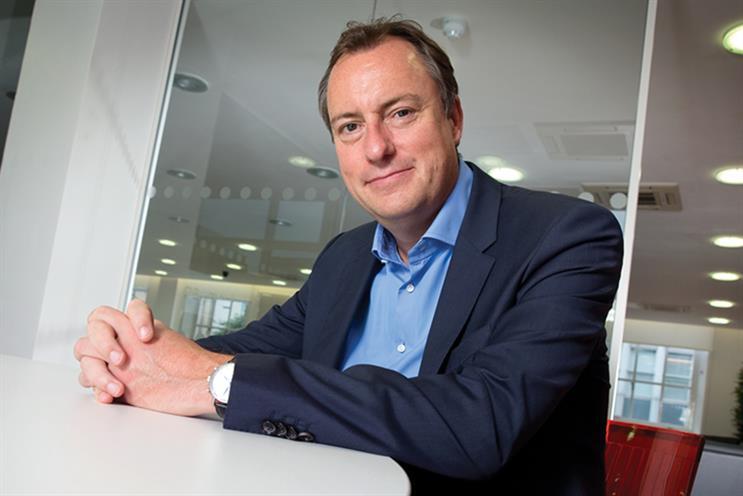New Hearst UK CEO’s strategy for success
Jon Watkins spoke to him ahead of the 41st FIPP World Congress, where he will be one of our speakers. The Congress takes place from 9-11 October at Tobacco Dock in London, and if you haven’t yet, now is your chance to sign up for it here.
 |
Tell us about your route to Hearst and your philosophy for driving the business forward – the approach and leadership beliefs that are steering your work?
I joined Hearst UK from Trinity Mirror where I was chief revenue officer. I was tasked with transforming the company’s industry reputation and driving a turnaround performance built around digital acceleration and creativity. Prior to that I worked at Yahoo as managing director and VP of sales. I also ran IDS, Virgin Media’s former television ad sales business, so I’ve got experience across several areas of media.
I joined Hearst in April this year. It’s a fantastic business with amazing content, trusted media brands, engaged audiences and hugely talented people working within it. I’ve been given a clear growth mandate and believe collaboration and a winning culture is fundamental to underpinning our success.
What do you see as the core opportunities for Hearst in the current market and the threats facing the industry right now?
Our industry is continuing to undergo significant change, and any successful business needs to get ahead of that change. At Hearst we have a clear focus on diversifying our revenues into areas like events and licensing. Our events business for example has doubled in size over the last 12 months and reaches over a million consumers a year through events such as the Elle Style Awards and Esquire Townhouse. Brand extensions are also key, and include a Country Living range of sofas with DFS and Men’s Health vitamins. We’ve also got a growing B2B operation offering accreditation via the Good Housekeeping Institution.
Ultimately, it’s our job to make sure that our content is reaching and engaging audiences everywhere. We go where they are, and so whatever platform they are on, our content is on.

What challenges has this thrown up, if any, around practical changes within the business?
I’ve now been in the role for four months and we’ve worked hard to ensure our structures are in the best shape possible to allow us to develop more content in key areas where we see an opportunity for growth. This has meant introducing new ways of working with the aim of an even more collaborative and creative culture.
There is a lot of discussion around the publishers’ abilities to drive ad revenue in the age of the Google/FB duopoly. Briefly, what is your view on how this will play out and does it in fact also create opportunities for business like Hearst?
Our brands are custodians of those brands that advertise with us, and we provide a safe, high-quality environment for them to do so. Google and Facebook are amazing businesses with clever ad products, but they aren’t as good at premium content, unless it is borrowed from other media owners. What we’re experts at is creating relevant, high-quality commercial content that audiences can connect with. Some of our most shared content is commercial, and that’s because our teams understand their audiences inside out and back to front.
Get stories like these in your inbox every week. Subscribe to out (free) FIPP World newsletter.
How is the issue impacting Hearst’s approach to revenue generation and how is the business diversifying in this sense?
It means that it’s even more important that we’re providing our audiences with a fantastic experience that engages them and that they interact with. Because if you have an engaged audience, who love and share your content – and we do – that’s appealing to advertisers. We know how to create engaging commercial content. A Good Housekeeping branded article with Not On The High Street for example was in the top 10 best performing articles last month. If you make sure it works for the audience, everything else will follow.

What other areas of the industry excite you right now?
I think some of the emerging disruptive technologies such as voice-activated products – like Amazon’s Alexa – are creating a range of exciting opportunities for media companies like Hearst. In the US, Alexa users can hear daily snippets of wisdom from Oprah Winfrey, which is a brilliant innovation. I’m also very interested in what our clients are saying to us about their concerns about the ‘flight to quality’ as they seek to improve online brand safety.
Meet James at the 41st FIPP World Congress in London, 9-11 October.

More like this
[Congress speaker Q&A] How Ebner Media targets special interest audiences with effective advertising
[Congress speaker Q&A] How a Canadian publisher turned ‘the traditional ad model on its head’
[Congress speaker Q&A] License to thrill
[Congress speaker Q&A] How video and social are perfect partner for news
[Congress speaker Q&A] Christian Kallenberg on ‘touch and feel’ in a world of ‘swipe and scroll’







